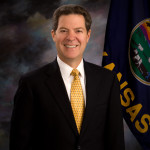Adjusted for inflation, the federal Legal Services Corporation budget is at a 40-year low just as the hundreds of state-level offices it funds are facing more people needing legal assistance in the face of foreclosure, family stress and other non-criminal justice issues. A piece in the Hill newspaper’s “Congress Blog” by James R. Silkenat outlines the issue and profiles specific examples of how the programs work.
The Hill reports that “… with more than 63 million (1 in 5) Americans qualifying for pro bono legal assistance, a major justice gap exists in the U.S. Those at the poverty level simply cannot afford to hire an attorney. Their only hope is a pro bono lawyer, but because of high demand for legal aid and lack of funding, these groups already turn away more clients than they can help.”
Beyond individual stories, Silkenat notes that failure to provide lower income people with civil legal aid can consume “alarming” amounts of court time and result in procedural problems with good cases. He also explains the LSC: “… funded by the U.S. government, the LSC-associated legal aid offices that exist in every state contributed to the 2.3 million low-income Americans helped in 2011.”
President Obama’s is seeking $430 million, a level supported by the American Bar Association, up from $365 million this fiscal year and closer to the $420 million appropriated in fiscal 2010. Read more here.


